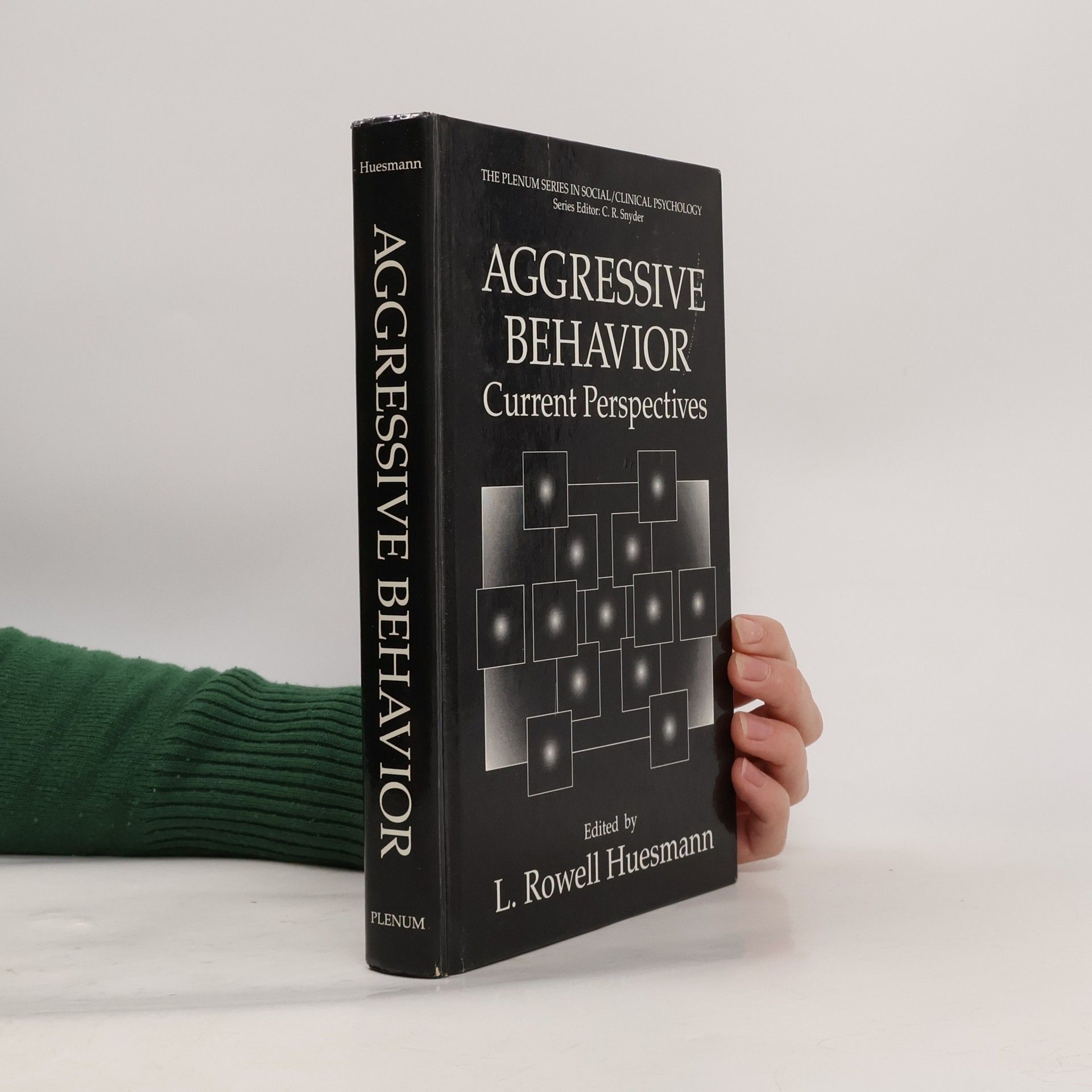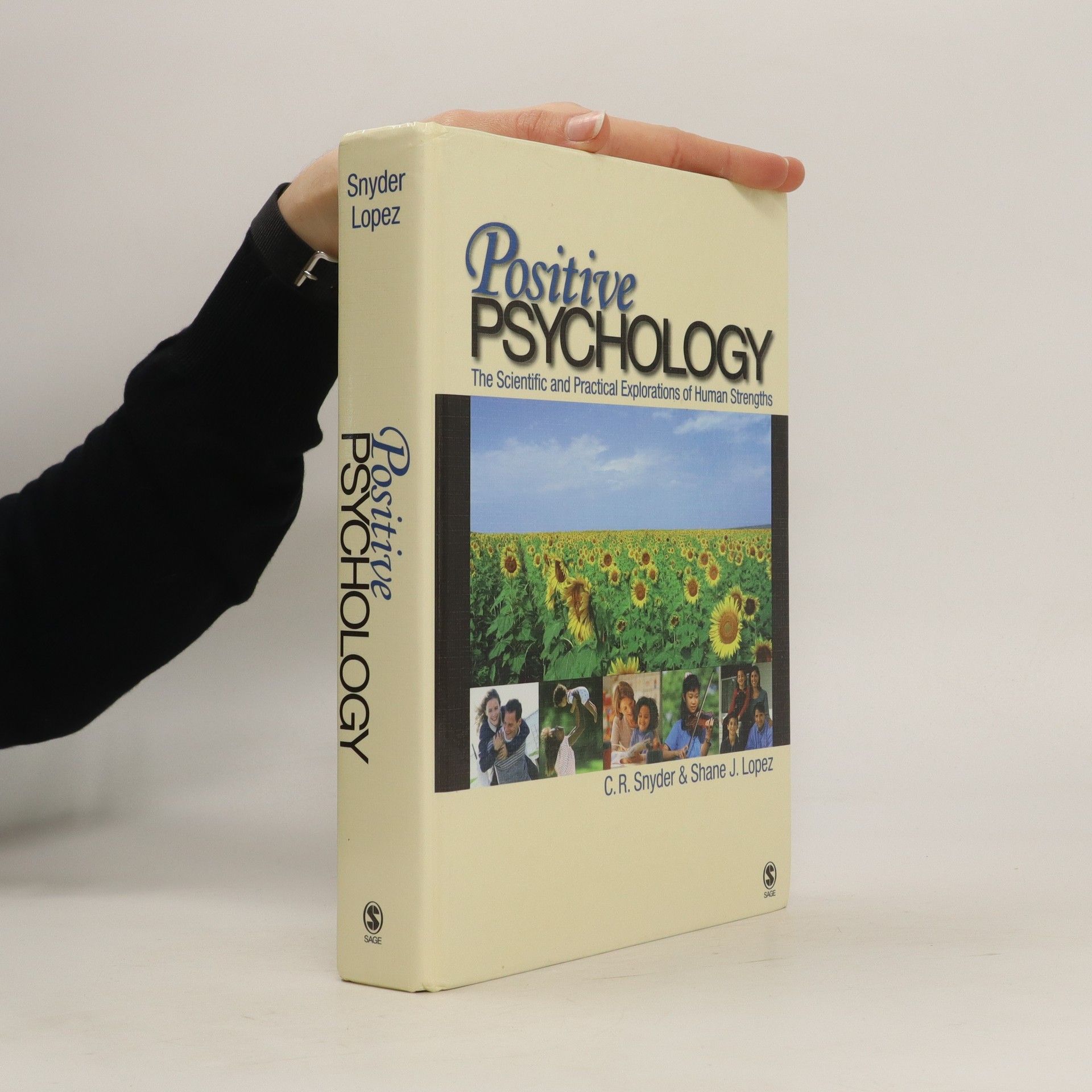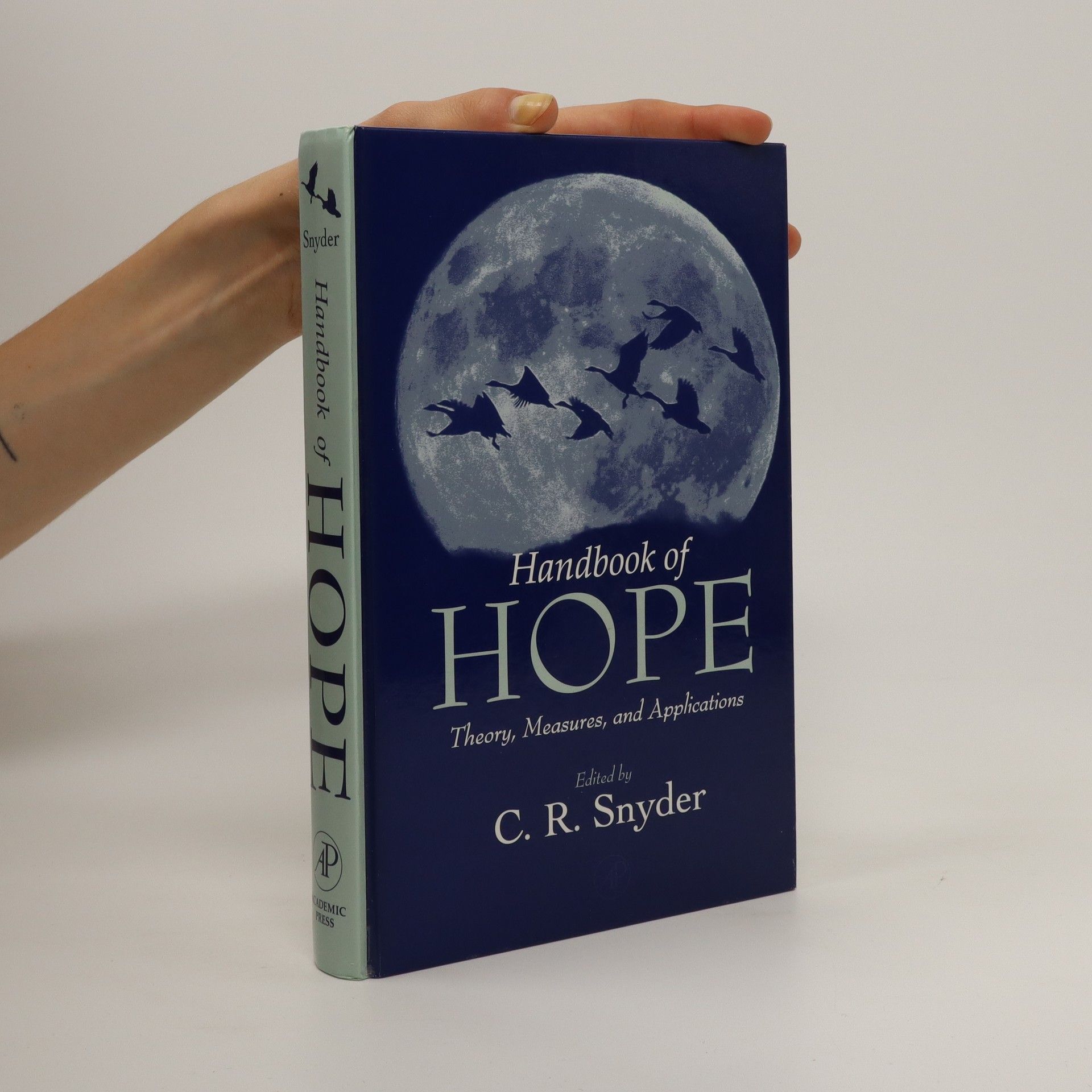Handbook of positive psychology
- 848 pages
- 30 hours of reading
What strengths does a person employ to deal effectively with life? This handbook provides a forum for a more positive view of the human condition.
Rick Snyder was an internationally recognized professor at the intersection of clinical, social, personality, and health psychology. His theories explored how people react to personal feedback, the human need for uniqueness, and the drive to excuse transgressions. His most recent research focused on the motives of hope and forgiveness. As a pioneer in the positive psychology movement, Snyder detailed hope's impact across various life domains, including health, children, spirituality, and work.





What strengths does a person employ to deal effectively with life? This handbook provides a forum for a more positive view of the human condition.
Hope has previously been a construct more of interest to philosophy and religion than in psychology. New research has shown, however, that hope is closely related to optimism, feelings of control, and motivation toward achieving one's goals. The Handbook of Hope presents a comprehensive overview of the psychological inquiry into hope, including its measurement, its development in children, how its loss is associated with specific clinical disorders, and therapeutic approaches that can help instill hope in those who have lost theirs. A final section discusses hope in occupational how the use of hope can make one a better coach, teacher, or parent.
Written by two leaders of the positive psychology initiative, this groundbreaking new text brings positive social science to life through a comprehensive review of literature and well-crafted exercises that encourage readers to put positive psychology principles to the test. Positive Psychology: Scientific and Practical Applications of Human Strengths covers western and eastern approaches to understanding human strengths, along with the cultural and developmental influences on positive functioning. Key approaches for measuring and enhancing strengths and capitalizing on positive experiences are described.
In this important work twelve eminent scholars review the latest theoretical work on human aggressive behavior. Emerging theories of aggression; peers, sex-roles, and aggression; environmental investigation and mitigation of aggression; development of adult aggression; and group aggression in adolescents and adults are all discussed in detail to provide clinicians, researchers, and students with a cutting-edge overview of the field.
Ausreden - Warum wir unsere "grossen und kleinen Lügen" brauchen - bk983; mvg Verlag; Snyder/Higgins/Stucky; pocket_book; 1990